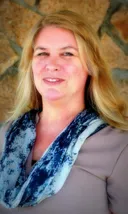Anxiety Management Through COVID-19’s Second Wave

Wavebreak Media Ltd/123RF.com
Just as many of us begin to venture out in the world for more than groceries and essential medical care, a second COVID-19 wave has struck many places across the country. Once again, we're encouraged to stay home. Hugging or close contact with those outside our immediate family or friend group is discouraged. Not knowing what comes next only heightens our current stress. Some people live in states still under lockdown orders. Others are in states that have reopened businesses, parks, and close-contact services only to have outbreaks threaten to close them down again. Maybe you are a healthcare provider on the frontlines of COVID-19. Maybe you are a young mom watching as decisions are made about school reopening in the fall. Whatever your specific life circumstance, you are not immune to the anxiety that comes along with such unsettled times. With calm, focus, and armed with the facts, we can face the future together with a more settled heart and mind.
Getting Physical
Anxiety often manifests in physical sensations. A racing heart, sweating, and feeling like you could jump out of your skin are common physical symptoms of anxiety. Many people feel physically ill during panic attacks. Take a moment to quiet these physical expressions of anxiety through meditation. Focus on your breathing. If sleep is disrupted or hard to come by, try the free Calm or Headspace apps or countless others. Medical students, residents, and physician members of the American Medical Association can access a free 2-year membership to Headspace.
Cognitive Behavioral Therapy & COVID-19
Cognitive Behavioral Therapy (CBT) is recognized as a best practice in treatment for anxiety and depression disorders. CBT involves separating feelings from facts. Focus on processing facts in a way that limits emotional stimulation and anxiety. Write the facts around what’s causing your anxiety. Maybe you are very afraid you will contract COVID-19. On the fact column, write down things like “safely staying at home” or “limiting exposure to others through social distancing.” Include facts like “close to 90% of US COVID-19 patients recover.” Use this list and repeat the phrases and focus on the facts when anxiety begins to churn.
Manage Your Social Media Intake
Your best friend is working remotely at the beach and perfecting his chili recipe. Social media highlights our idealized selves and captures a single moment in time. If you can’t help but make comparisons to your life through the filter of social media, step away from all but essential work-related social media for a bit. Likewise, if you find yourself drawn to catastrophic COVID-19 news that heightens your anxiety, look to local media resources and limit how often you receive notifications about COVID-19 related data or news. Stay up to date on news impacting your family’s daily lives and leave it there for now.
COVID-19 Frontline Healthcare Providers and Mental Health
The death by suicide of COVID-19 warrior Dr. Lorna Breen serves as a tragic harbinger to all healthcare providers on the front lines of COVID-19 care. Dr. Breen’s healthcare provider colleagues and tens of thousands more like them are vulnerable to more than COVID-19. These frontline providers have a much higher risk for severe depression, anxiety, and suicidal thinking when compared to other US citizens. Healthcare providers who feel they are going it alone or are just mind-numbed with grief and loss need special support. If this describes you, please talk to a colleague, partner, or friend NOW. If you wish to remain anonymous, call a physician helpline staffed by psychiatrists dedicated to those providing care to COVID-19 patients. Resources for COVID-19 nurses include a curated Wellness Initiative with a link to the National Suicide Prevention Lifeline and extensive support networks. Those COVID-19 healthcare providers not in crisis will find useful information at the Mental Health First Aid and American Medical Association websites.
Related Posts
